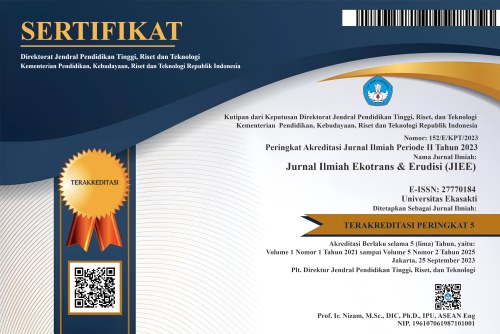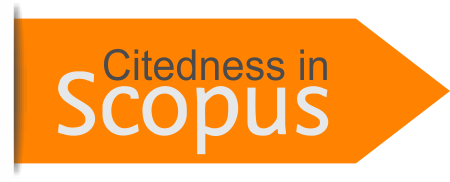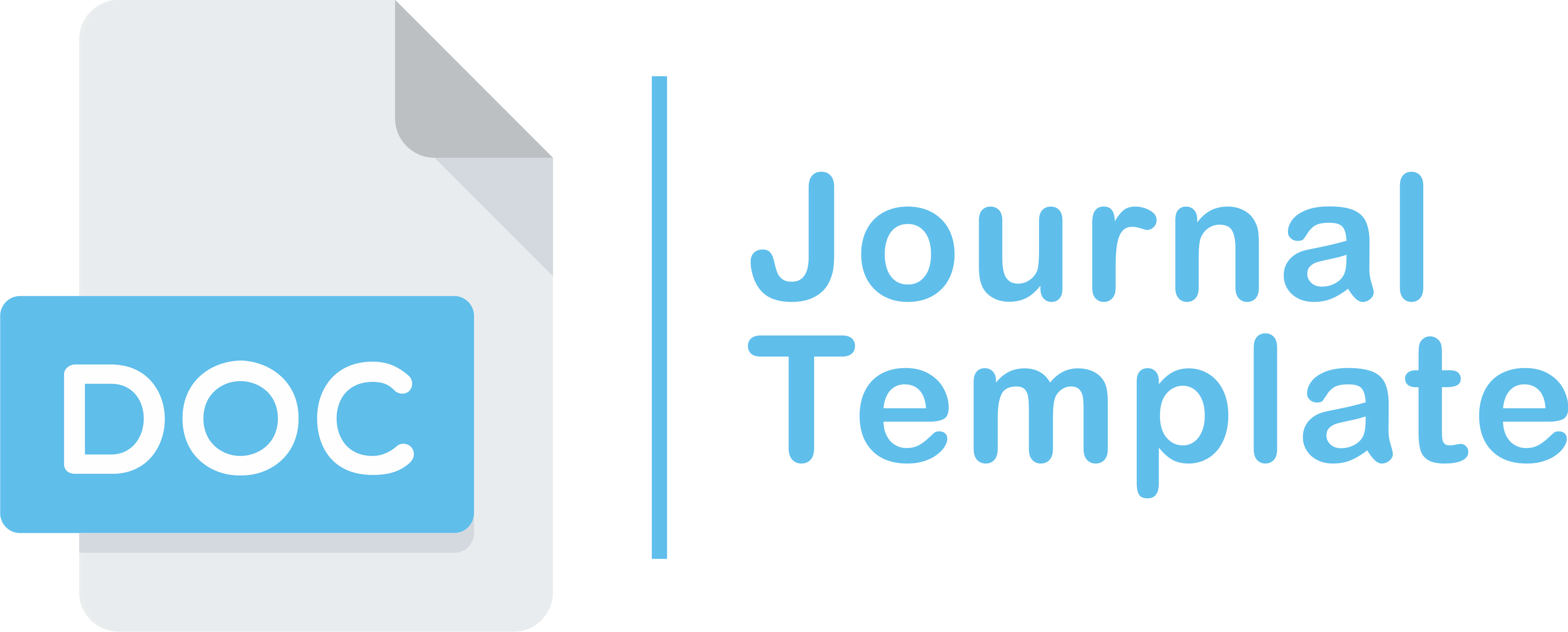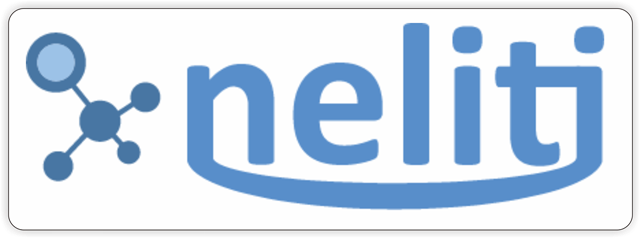Assessing the Role and Future of the Tax Court Post-MK Decision No. 26PUU-XXI2023
DOI:
https://doi.org/10.69989/b4r7gt95Keywords:
Tax Court, Tax Disputes, Judicial PowerAbstract
Taxation, as a fundamental component of the system of cooperation, serves as a financial resource to underpin governmental financing and expenditure while also acting as an instrument for the regulation of social and economic policies aimed at promoting equitable welfare. The process of tax collection occasionally engenders inequities for taxpayers; consequently, Law 14 of 2002 instituted the Tax Court as an autonomous judicial entity designated for the adjudication of tax-related disputes. Notwithstanding its establishment, the Tax Court encounters significant challenges, notably the dualism of authority wherein the Supreme Court provides technical guidance. At the same time, the Ministry of Finance oversees organizational, administrative, and financial directives. In the Constitutional Court's Decision (MK) Number 26/PUU-XXI/2023, the regulation pertaining to the oversight of the Tax Court was deemed inconsistent with Article 24, paragraphs (1) and (2) of the 1945 Constitution, prompting the Constitutional Court to impose a deadline of December 31, 2026, for the consolidation of the Tax Court's guidance authority under the auspices of the Supreme Court. Consequently, this research endeavours to scrutinize the role and prospective trajectory of the Tax Court alongside the measures necessary to effectuate the transfer of guidance authority in alignment with constitutional mandates. Hence, the author has entitled this study "Measuring the Role and Future of the Tax Court after the Constitutional Court Decision Number 26/PUU-XXI/2023." The questions posed for investigation are: What is the Role and Position of the Tax Court as delineated by the Tax Court Law, and what is the Role and Future of the Tax Court subsequent to the Constitutional Court Decision (Number 26/PUU-XXI/2023)? To address these inquiries, the author employs a qualitative writing methodology complemented by a normative legal perspective.
Downloads
References
Atikah, I. (2022). Metode Penelitian Hukum.
Basri, H., & Muhibbin, M. (2022). Kedudukan Pengadilan Pajak dalam sistem peradilan di Indonesia. Jurnal Hukum Dan Kenotariatan, 6(4), 1442–1458.
Bravestha, R. (2017). Kedudukan Pengadilan Pajak Dalam Sistem Peradilan Di Indonesia. Untag Surabaya.
Dewi, D. A. S. (2010). Penyelesaian Sengketa Pajak. Jurnal Fakultas Hukum Universitas Muhammadiyah Magelang, 5(2), 23266.
DM, M. Y., Akbar, A., Hariri, A., & Srinofrita, S. (2023). Analisis Yuridis Peranan dan Kedudukan Peradilan Pajak di Indonesia. Jurnal Pendidikan Dan Konseling (JPDK), 5(1), 1267–1273.
Erwiningsih, W. (2021). Implementasi Penyelesaian Sengketa Pajak Pada Pengadilan Pajak Indonesia. Justicia Sains: Jurnal Ilmu Hukum, 6(2), 248–262.
Gotama, I. W. S., Widiati, I. A. P., & Seputra, I. P. G. (2020). Eksistensi Pengadilan Pajak dalam penyelesaian sengketa pajak. Jurnal Analogi Hukum, 2(3), 331–335.
Ilyas, W. B., & Burton, R. (2013). Hukum pajak: Teori, analisis, dan perkembangannya. Jakarta: Salemba Empat.
Irawati, A., & Kuntara, I. (2022). Transformasi Pelayanan Publik di Era New Normal di Badan Pengelola Keuangan Daerah Kota Padang Panjang. Jurnal Ilmiah Ekotrans & Erudisi, 2(1), 73–82.
Ispriyarso, B. (2014). Analisis Yuridis Terhadap Kedudukan Pengadilan Pajak Sebagai Pengadilan Khusus Di Lingkungan Peradilan Tata Usaha Negara. Masalah-Masalah Hukum, 43(1), 40–48.
Melyani, R. S., Putera, R. E., & Koeswara, H. (2022). Strategi Kantor Sistem Administrasi Manunggal Satu Atap (SAMSAT) Painan dalam Meningkatkan Pendapatan Pajak Kendaraan Bermotor di Kabupaten Pesisir Selatan. Jurnal Ilmiah Ekotrans & Erudisi, 2(1), 11–21.
Purba, P. P. Q., & Simatupang, D. P. (2023). Upaya Penyelesaian Sengketa Pajak PT Taspen (Persero) Kantor Cabang Utama Medan. Jurnal Ilmiah Penegakan Hukum, 10(1), 33–41.
Sasanti, D. N., & Indah, H. T. K. (2022). Problematika Penyelesaian Sengketa di Pengadilan Pajak Dalam Rangka Perwujudan Peradilan Sederhana, Cepat, dan Biaya Ringan. Reformasi Hukum, 26(1), 21–38.
Tomson, S. (2022). Reposisi pengadilan pajak menurut sistem kekuasaan kehakiman di Indonesia. Honeste Vivere, 32(2), 108–122.
Umboh, D. Y. (2021). Prosedur Penyelesaian Sengketa Pajak di Pengadilan Pajak Menurut Undang Undang Nomor 14 Tahun 2002. Lex Administratum, 9(8).
Wiyanto, H. M. (2022). Peradilan Khusus di Dalam Sistem Peradilan di Indonesia. Jurnal Hukum Progresif, 10(1), 76–85.
Downloads
Published
Issue
Section
License
Copyright (c) 2024 Robi Syafwar, Elwidarifa Marwenny, Friderika Friska Telaumbanua (Author)

This work is licensed under a Creative Commons Attribution-ShareAlike 4.0 International License.
Copyright Notice
An author who publishes in the journal "Jurnal Ilmiah Ekotrans & Erudisi" agrees to the following terms:
Author retains the copyright and grants the journal the right of first publication of the work simultaneously licensed under the Creative Commons Attribution-ShareAlike 4.0 License that allows others to share the work with an acknowledgement of the work's authorship and initial publication in this journal
Author is able to enter into separate, additional contractual arrangements for the non-exclusive distribution of the journal's published version of the work (e.g., post it to an institutional repository or publish it in a book) with the acknowledgement of its initial publication in this journal.
Author is permitted and encouraged to post his/her work online (e.g., in institutional repositories or on their website) prior to and during the submission process, as it can lead to productive exchanges, as well as earlier and greater citation of the published work (See The Effect of Open Access).
All materials in this site are protected by the law. It is prohibited to quote a part of or all of this website contents for commercial purposes without the permission or consent of the editors.
If anyone finds one article or more in this journal violate or potentially violate one’s copyrights, please report to us through e-mail of Principle Contact.
Legal-formal aspects of accessing any information and manuscript in this journal website refer to the provision of license Creative Commons Attribution-Share Alike (CC BY-SA). Read more about the Creative Commons Attribution-ShareAlike 4.0 Licence here: https://creativecommons.org/licenses/by-sa/4.0/.
All information available in 'Jurnal Ilmiah Ekotrans & Erudisi' is academic in nature. 'Jurnal Ilmiah Ekotrans & Erudisi' is not responsible for loss due to the abuse of information in the website.
Information
Notice about change in the copyright policy of the journal 'Jurnal Ilmiah Ekotrans & Erudisi' : "From Volume 1, Nomor 1 onwards the copyright of the article published in the journal 'Jurnal Ilmiah Ekotrans & Erudisi' will be retained by the author"
Privacy Statement
The names and email addresses entered in this journal site will be used exclusively for the stated purposes of this journal and will not be made available for any other purpose or to any other party.




































